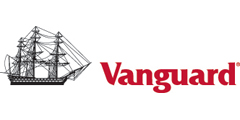

Expert: Garrett Harbron, Vanguard
Facilitator: John Chapman, Owen James
Garrett Harbron, Investment Strategist from Vanguard presented his document highlighting the need for financial advisers to transition from portfolio managers to relationship managers. There is a downward pressure on fees and Garrett highlighted the following issues with the current propositions:
- Traditional value proposition is primarily focused on outperformance.
- This value proposition has extremely high hurdles.
- Traditional proposition requires tremendous alpha after fees and taxes.
- Outperformance and value proposition has not been achieved for the vast majority.
- Advisory performance is not getting worse, but comparative information and competitive substitutes are getting better.
- Like most industries, continuous improvements are essential to keep up with technology, new entrants and evolving value proposition
Downwards pressure on fees can be seen in current advisory ongoing fees at 1%, but UK Robo fees are at 0.75% and US Robo fees at 0.25%.
Keeping track on “Costs to serve” is the key to future profitability
Vanguards’ predictions for the future of advice and advisors:
- Dominated by investment professionals acting principally as behavioural coaches and relationship managers, and less like portfolio managers.
- Return on adviser’s time will be the critical metric.
- Keeping investment costs down and matching advisor engagement to the level of fees will be the key to maintaining margins.
The debate around the table focused on cash flow modelling as being a key to customer engagement and building initial confidence with the client. It is also key to demonstrating value in the service provided by advisers. Key points from the debate are:
- Stop talking about performance.
- Cash flow modelling works and provides a facilitator for detailed discussion. Some advisers prefer simple cash flow tools, others prefer more detailed – whichever method is selected, it is important to provide cash flow modelling in a cost effective manner.
- IFA’s have developed engagement strategies using simple dashboard information, don’t present glossy brochures and prefer graphical information. Also use “Scenario” examples with new clients to show what the adviser has done for a similar client.
- Advice costs are being focused on by new clients, particularly those aged under 40. Lower growth environments also provide a challenge on costs and MIFID II will provide a new challenge as costs become even more transparent.


